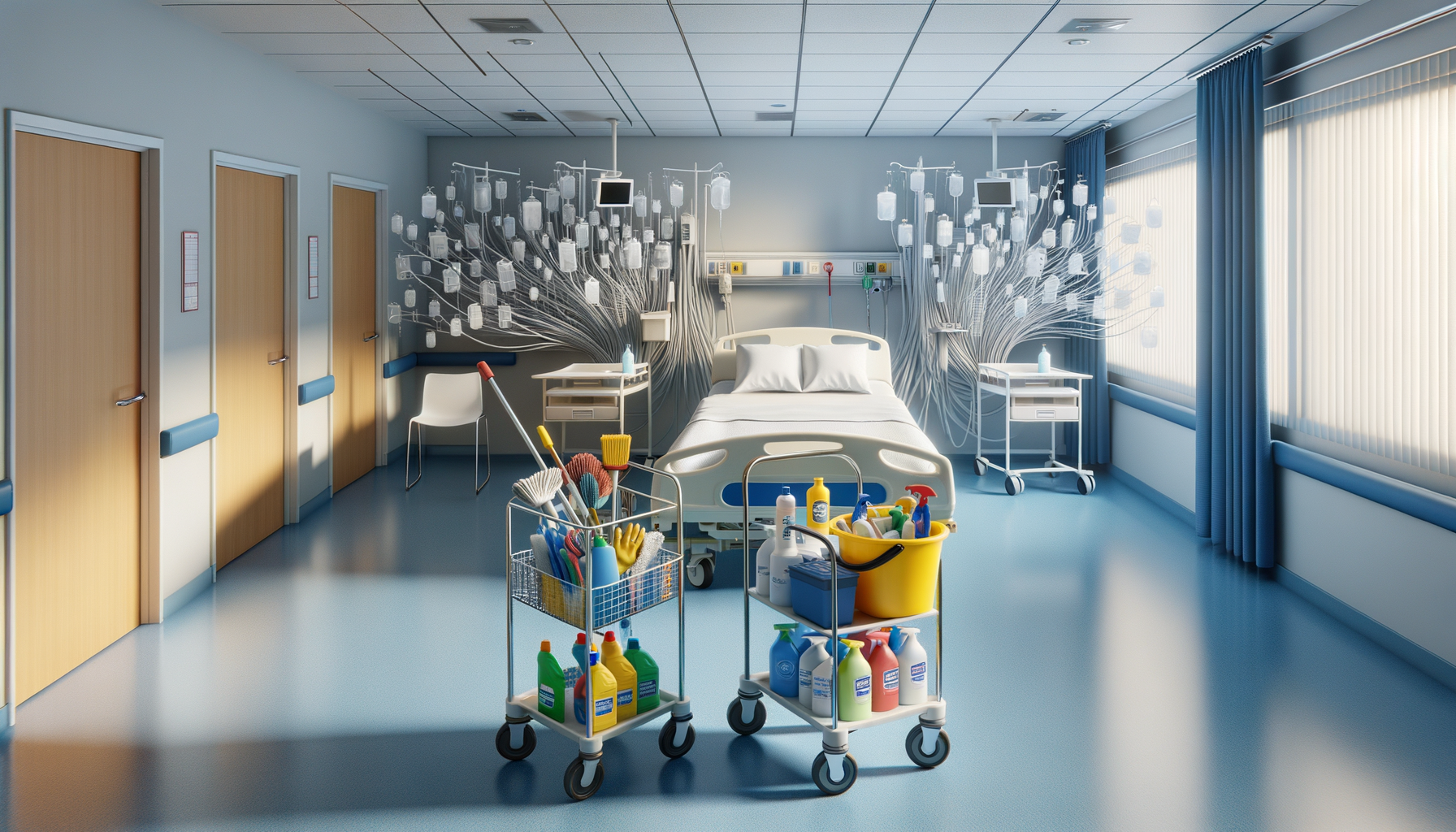The Importance of Hospital Cleaners in Healthcare
In the bustling environment of healthcare facilities, hospital cleaners are fundamental to maintaining a safe and hygienic space. Their work is critical in preventing the spread of infections and ensuring that patients, staff, and visitors are in a clean environment. Hospital cleaners not only manage visible cleanliness but also engage in deep cleaning practices that are crucial for sterilizing areas prone to contamination. This role is vital in the healthcare sector as it directly impacts patient recovery and overall health outcomes.
The responsibilities of hospital cleaners include the following:
- Disinfecting surfaces and equipment to prevent cross-contamination.
- Managing waste disposal, including hazardous materials.
- Ensuring that all areas, including operating rooms, patient wards, and public spaces, meet stringent cleanliness standards.
These tasks require a keen eye for detail and a commitment to health and safety protocols. Hospital cleaners must be trained in using specialized cleaning agents and equipment, adhering strictly to guidelines to ensure effective cleaning. Their contribution is not just about maintaining aesthetics but about creating a safe and healing environment for all.
Understanding the Role of Hospital Cleaning Nearby
When considering hospital cleaning nearby, it’s essential to recognize the local dynamics of healthcare facilities. Proximity to healthcare centers can affect the availability and recruitment of cleaning staff. Local cleaners may have a better understanding of community needs and expectations, which can enhance the quality of service provided.
Many hospitals prefer hiring local cleaners because:
- They can respond quickly to urgent cleaning needs.
- They often have a vested interest in maintaining the reputation of local facilities.
- They are familiar with the local culture and language, facilitating better communication.
Moreover, hospital cleaning nearby often involves collaboration with local cleaning agencies that provide specialized training and resources. These agencies ensure that their staff are equipped with the latest cleaning technologies and methods, keeping up with the evolving needs of healthcare environments. By understanding the local context, hospital cleaners can tailor their services to meet specific requirements, thereby enhancing the overall effectiveness of their role.
Navigating the Vacancy Cleaner Market
The demand for hospital cleaners is consistently high, making it a viable career option for many. The vacancy cleaner market is influenced by various factors, including healthcare facility expansions, increased health awareness, and the need for specialized cleaning services. As healthcare facilities grow, so does the need for qualified cleaning personnel who can uphold the highest standards of hygiene.
When searching for a vacancy cleaner position, candidates should consider:
- The type of healthcare facility and its specific cleaning requirements.
- The training and certification opportunities available.
- The working conditions, including shift patterns and salary.
Many hospitals offer comprehensive training programs for new cleaners, ensuring they are well-prepared to handle the challenges of the job. This training often includes infection control, proper handling of hazardous materials, and the use of advanced cleaning equipment. By equipping cleaners with these skills, healthcare facilities not only enhance their operational efficiency but also contribute to the professional development of their staff.
The Path to Becoming a Hospital Cleaner
Becoming a hospital cleaner requires a combination of skills, training, and a strong commitment to health and safety. While formal education may not be mandatory, many healthcare facilities prefer candidates with basic literacy and numeracy skills, as these are essential for understanding cleaning instructions and safety protocols.
Key steps to becoming a hospital cleaner include:
- Gaining experience in general cleaning roles to build foundational skills.
- Pursuing training programs focused on healthcare cleaning standards.
- Obtaining certifications in infection control and hazardous material handling.
Hospital cleaners must also possess personal attributes such as attention to detail, reliability, and the ability to work independently or as part of a team. As they gain experience, cleaners may have opportunities to advance to supervisory roles, where they can oversee cleaning operations and train new staff. This career path not only offers job stability but also the satisfaction of contributing to the well-being of patients and healthcare workers.
Conclusion: The Unsung Heroes of Healthcare
Hospital cleaners are truly the unsung heroes of healthcare. Their work, though often behind the scenes, is crucial to the functioning of medical facilities. By maintaining high standards of cleanliness, they protect patients, staff, and visitors from potential health risks. As the healthcare industry continues to evolve, the role of hospital cleaners will only become more significant. By understanding and appreciating their contributions, we can ensure that these vital workers receive the recognition and support they deserve.
In conclusion, whether you are considering a career as a hospital cleaner or seeking hospital cleaning nearby, it’s clear that this profession is integral to the healthcare system. It offers opportunities for growth, the chance to make a meaningful impact, and the satisfaction of being part of a team dedicated to improving public health.

Leave a Reply